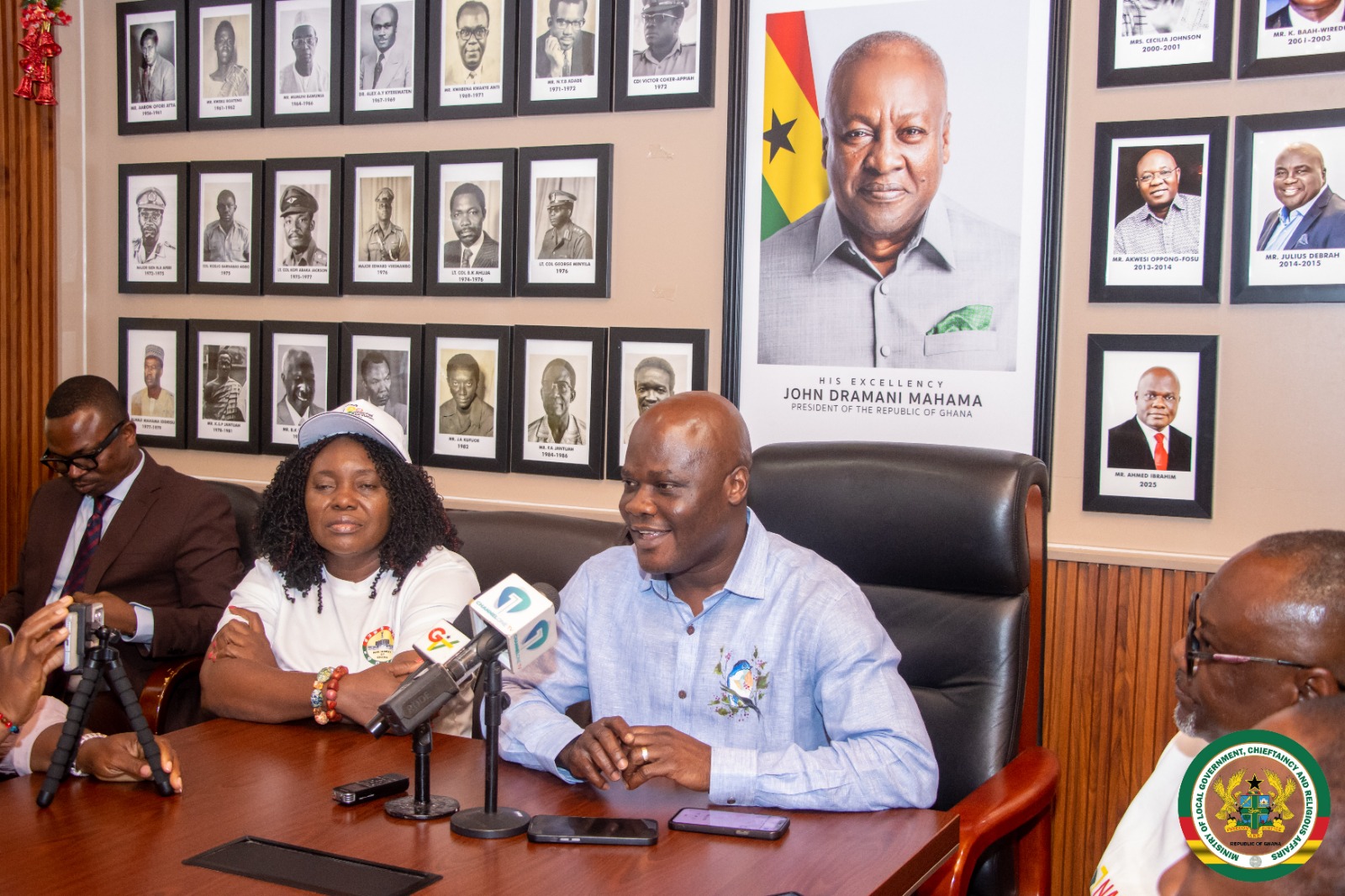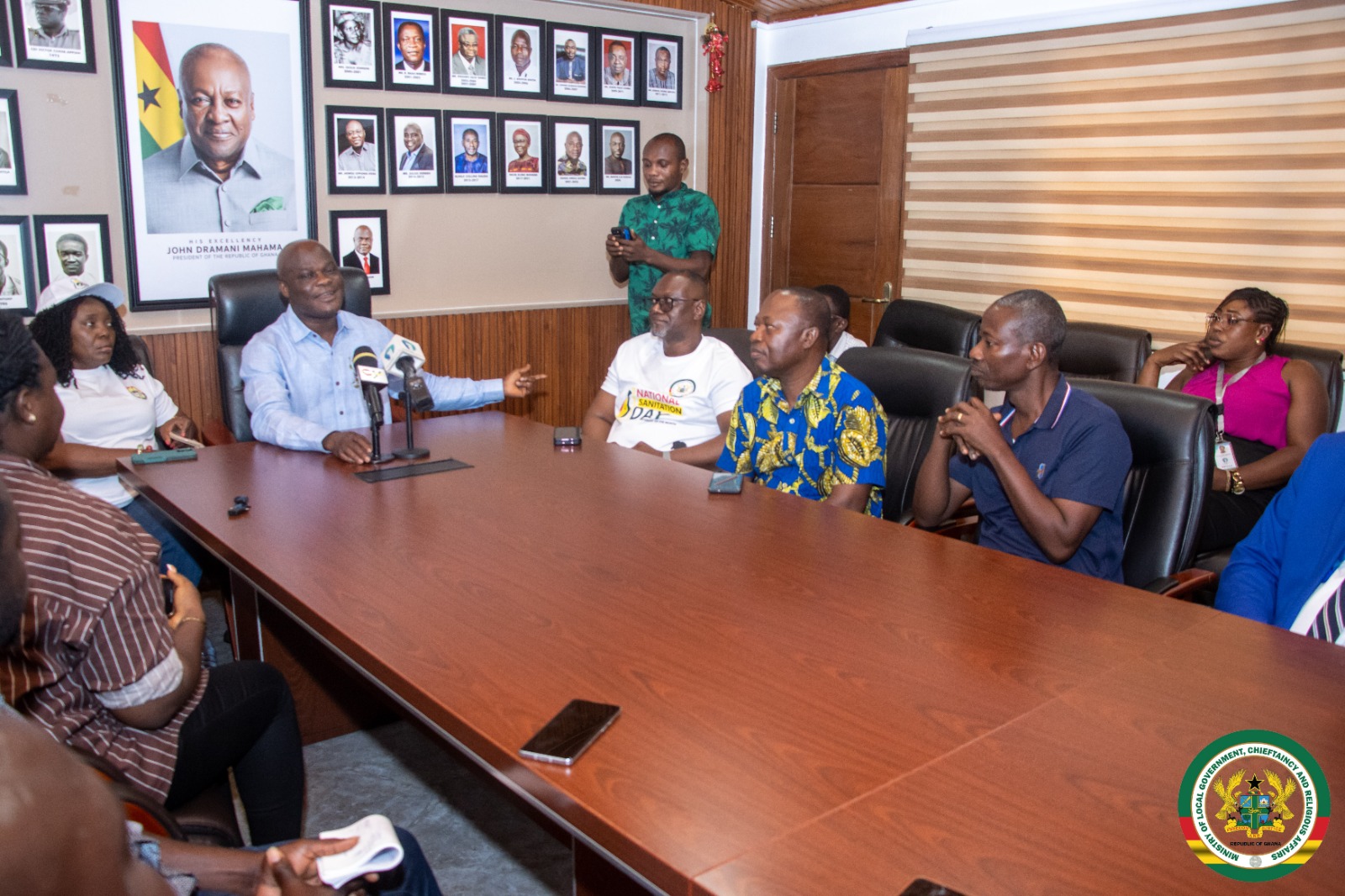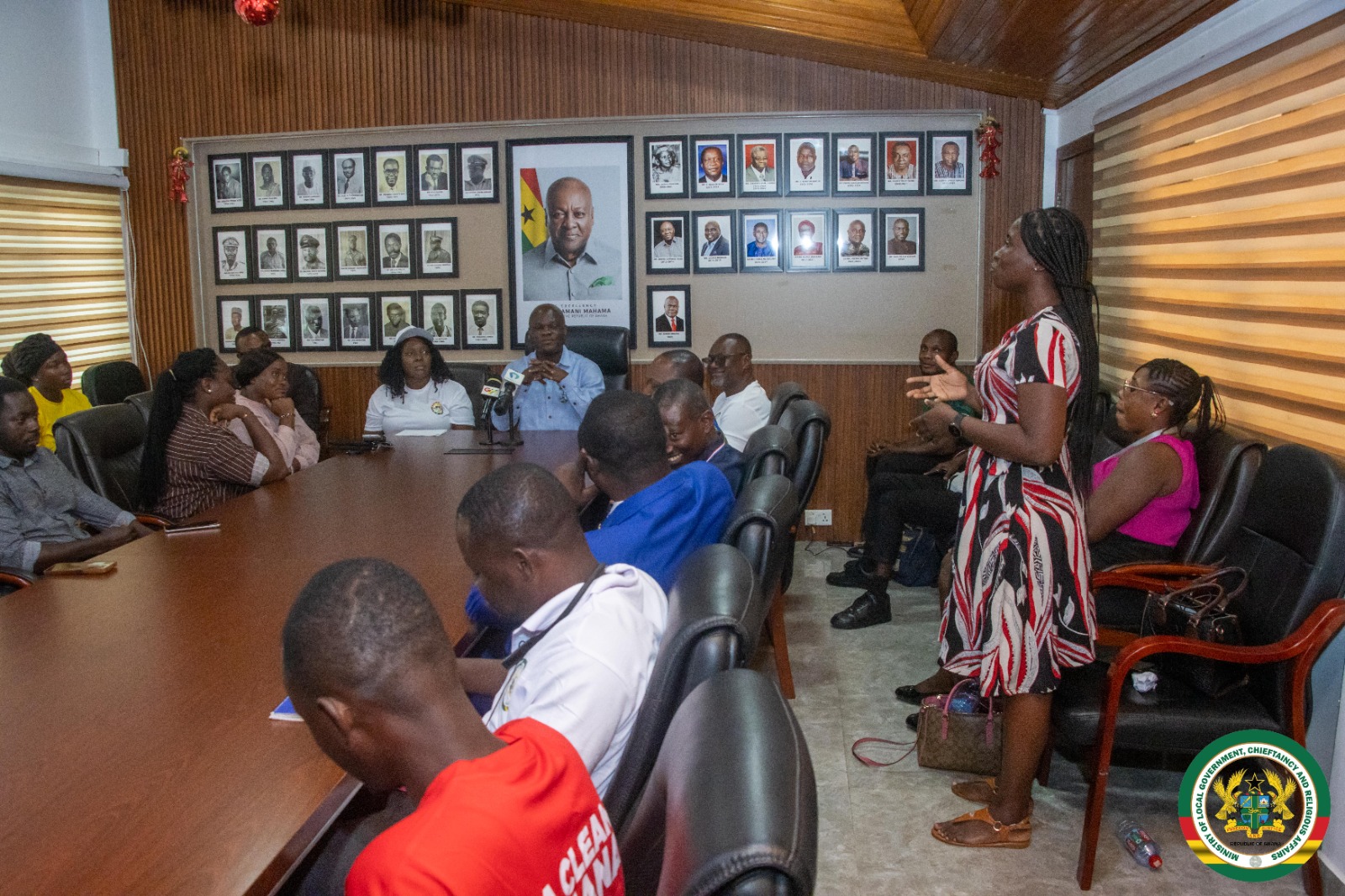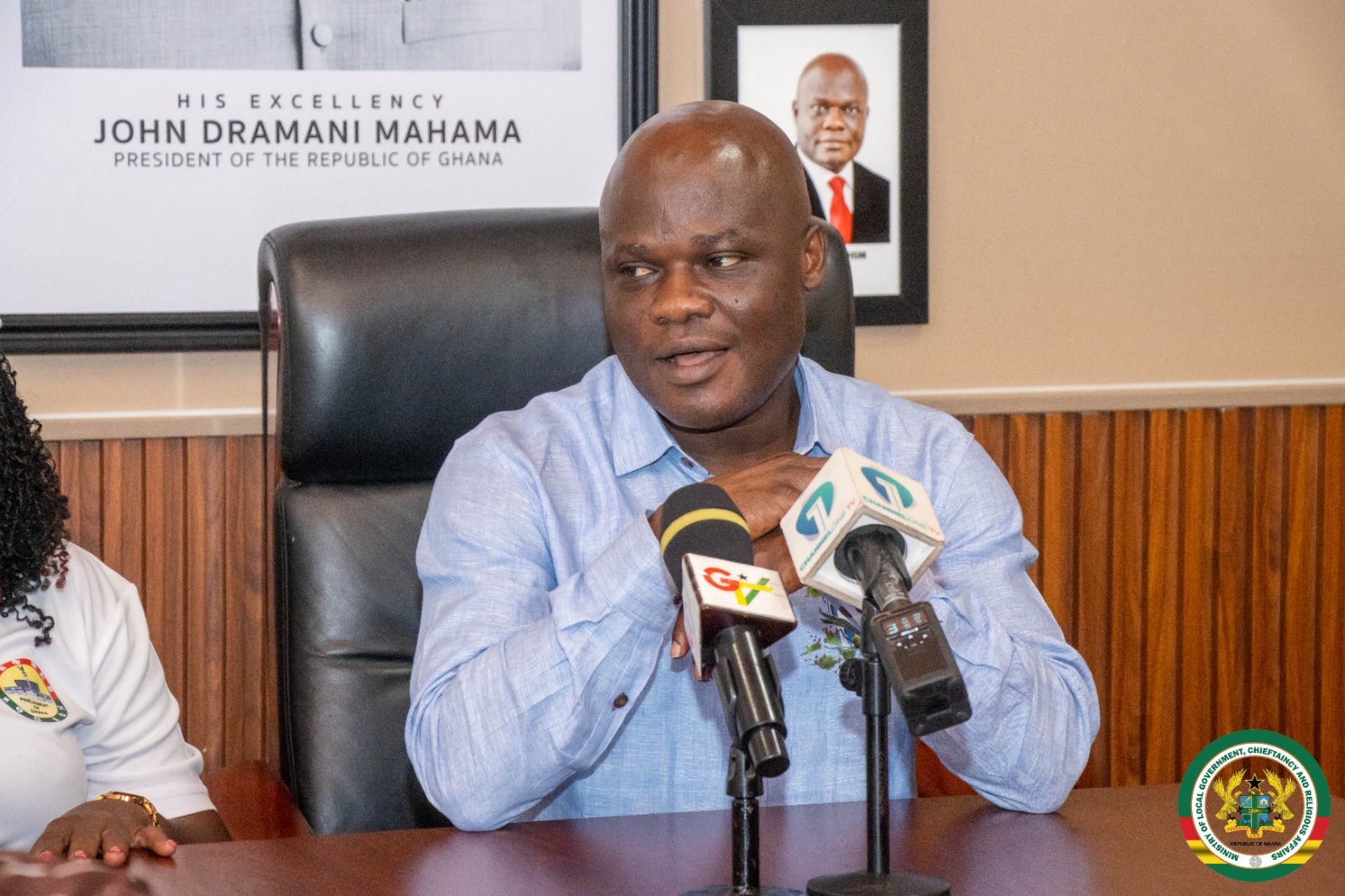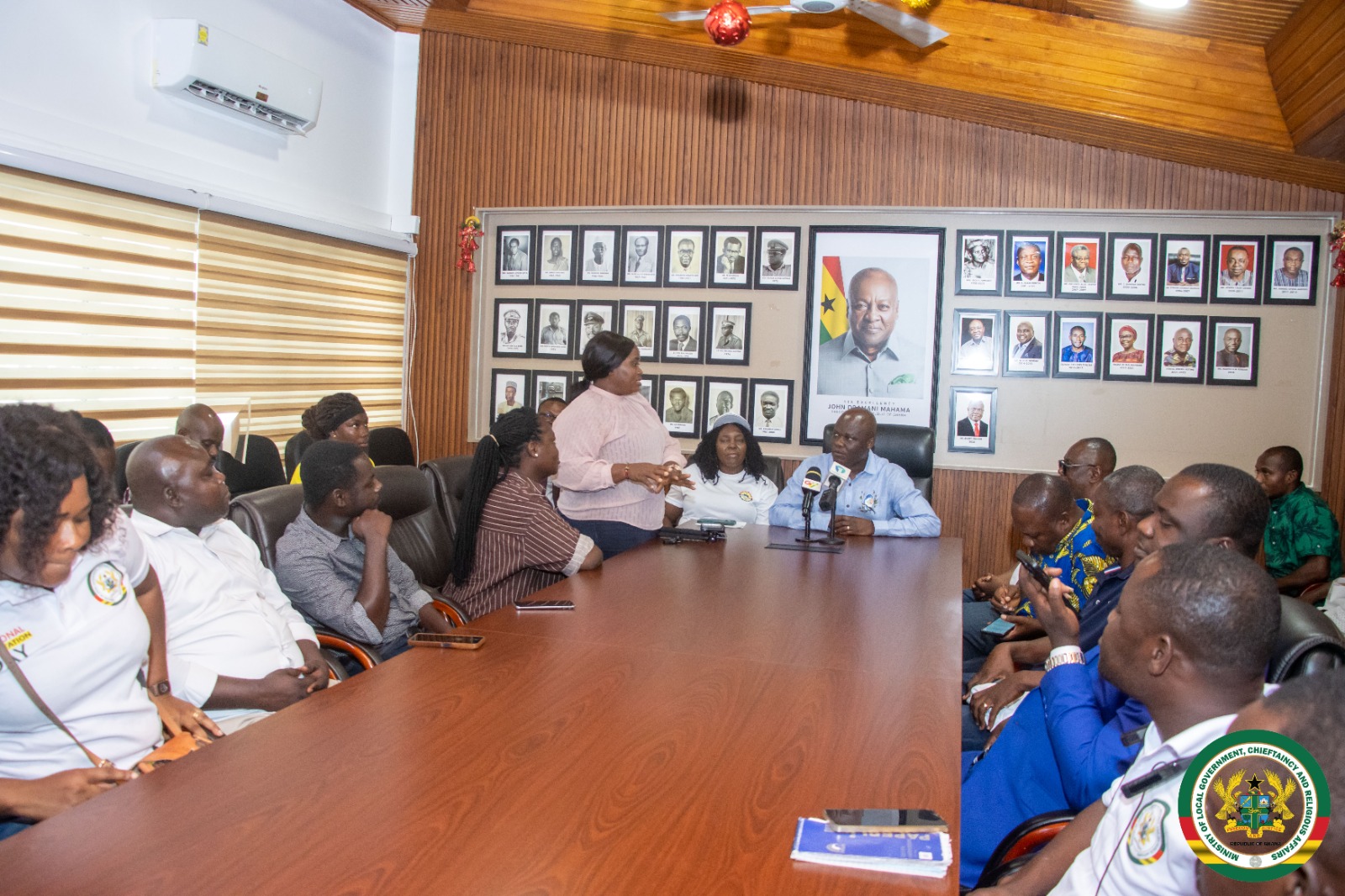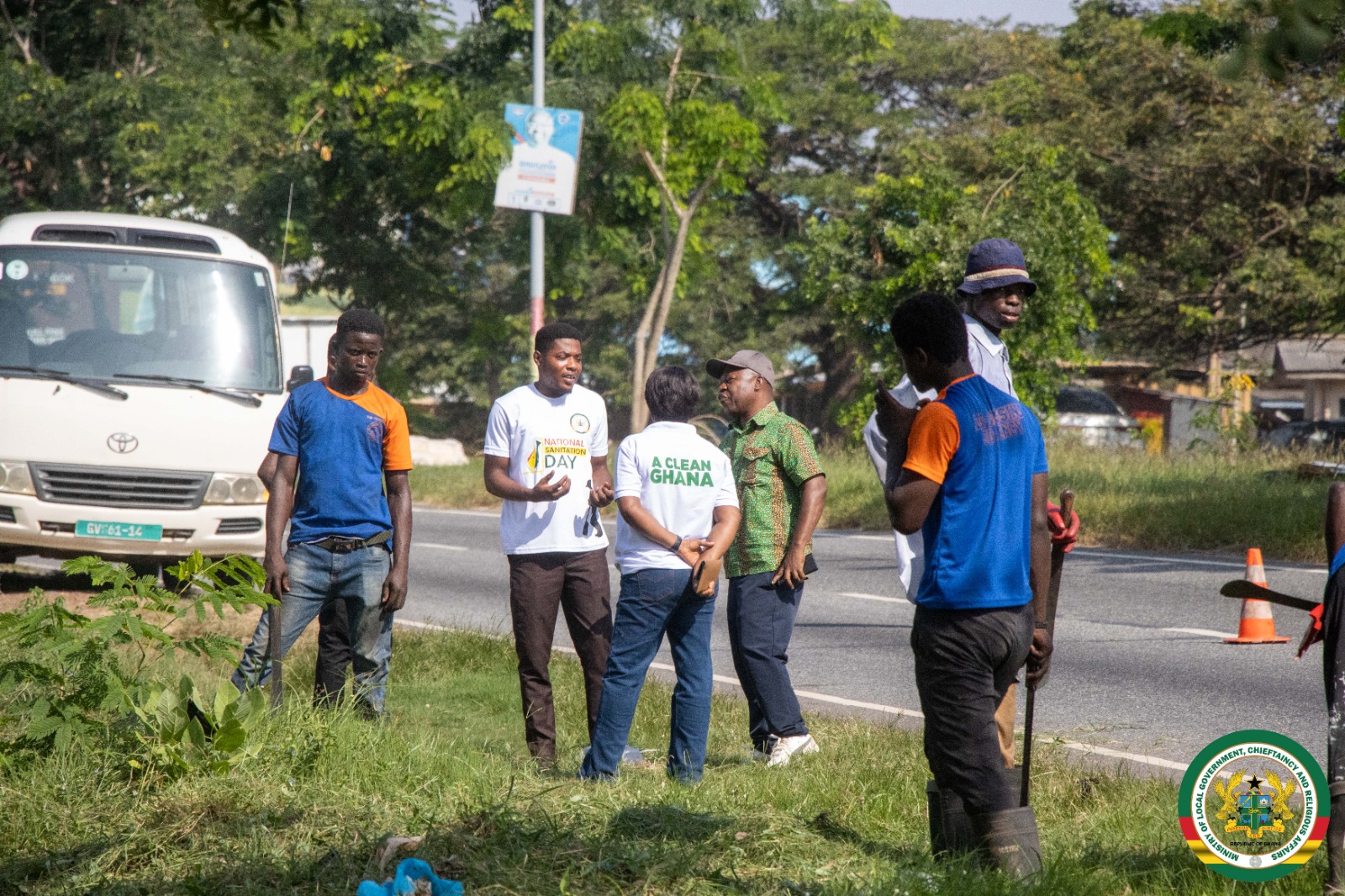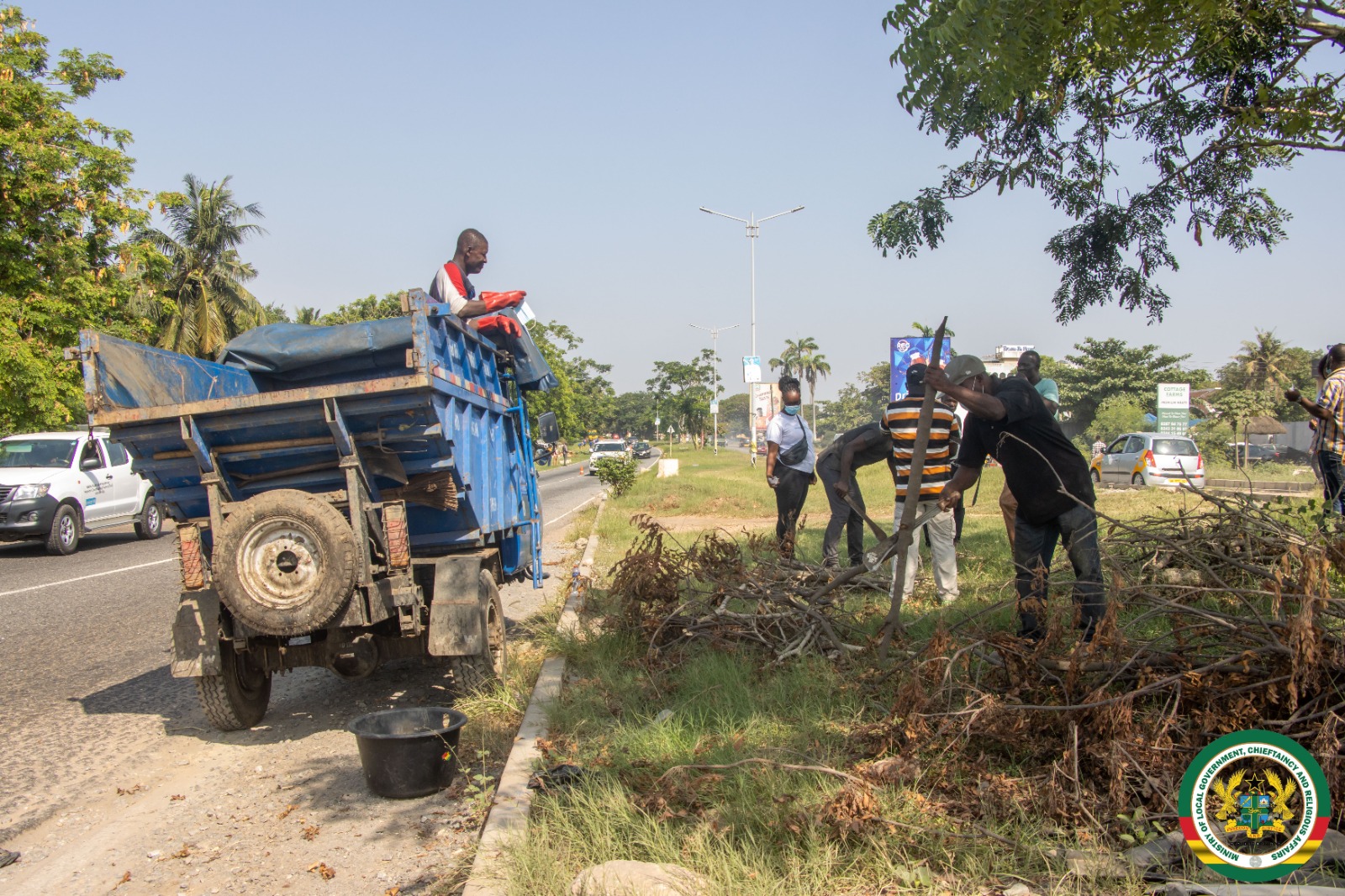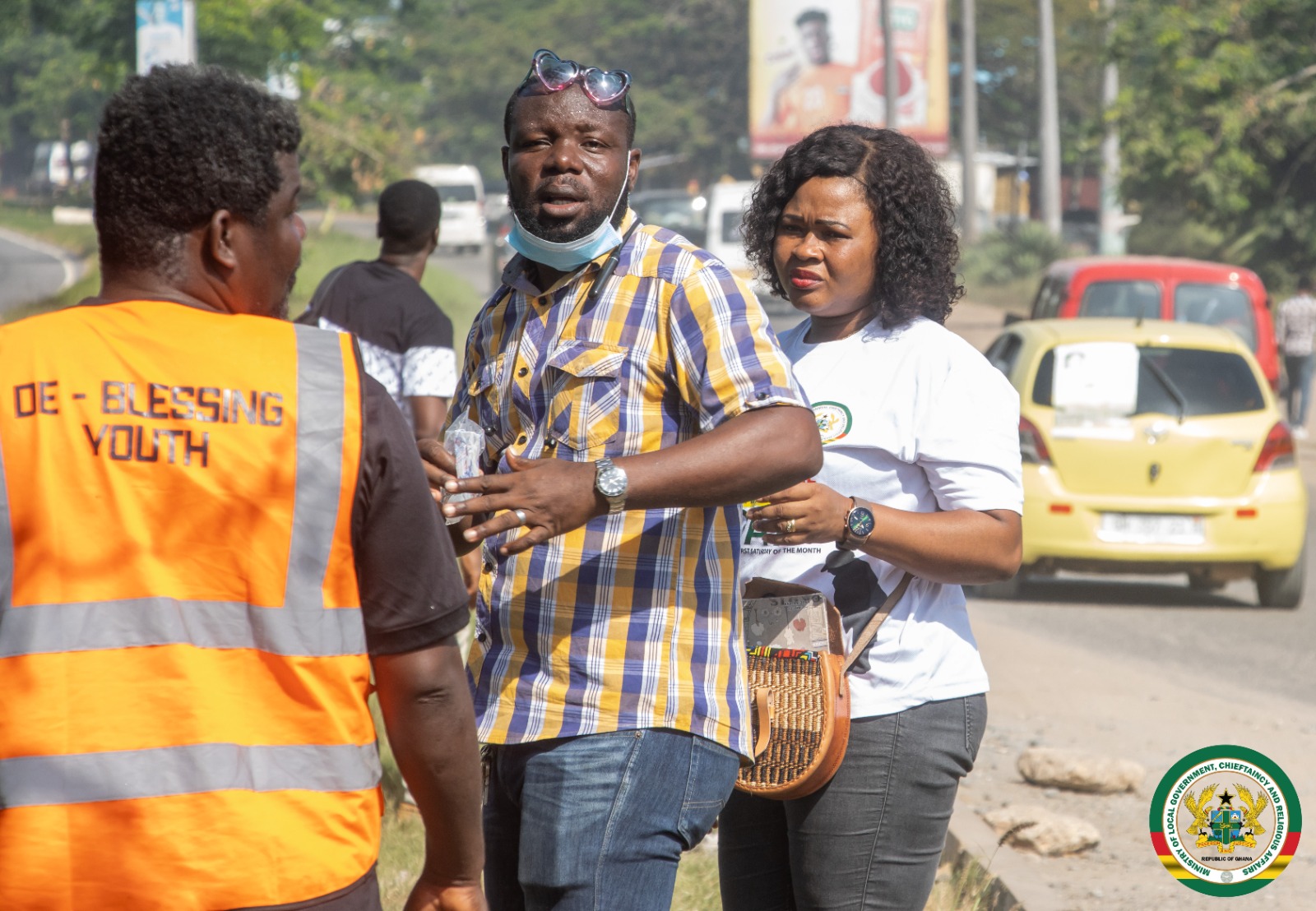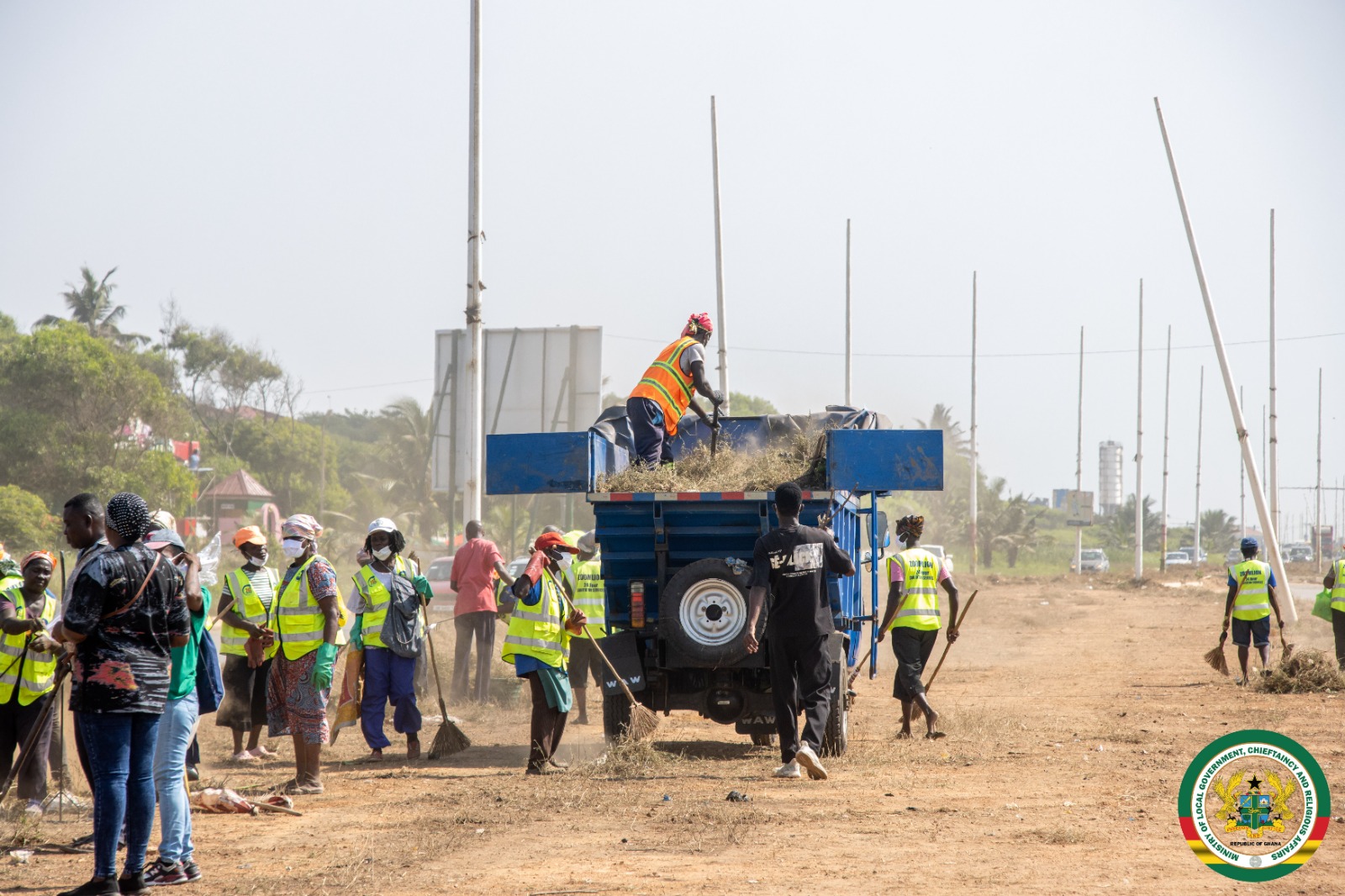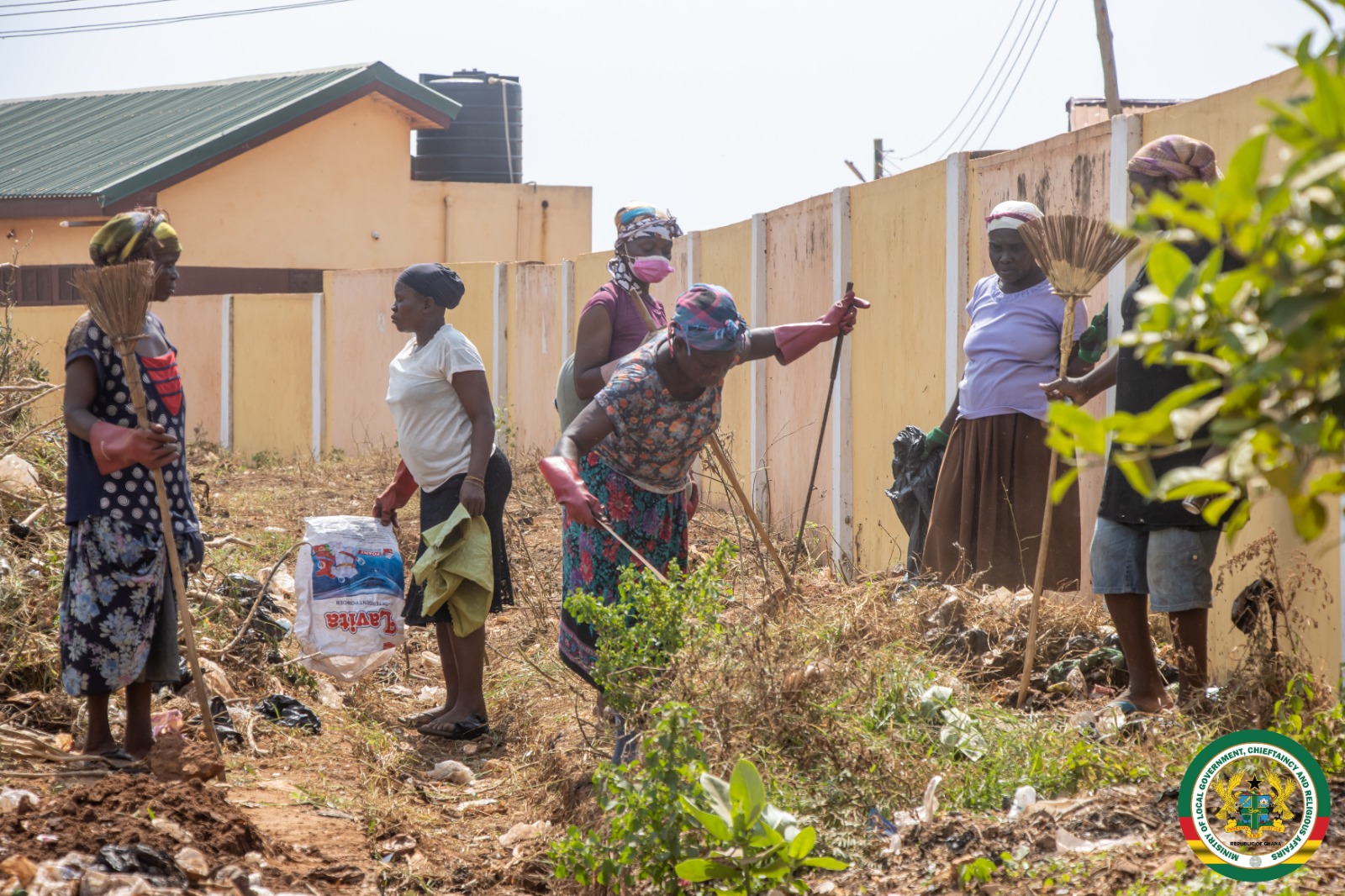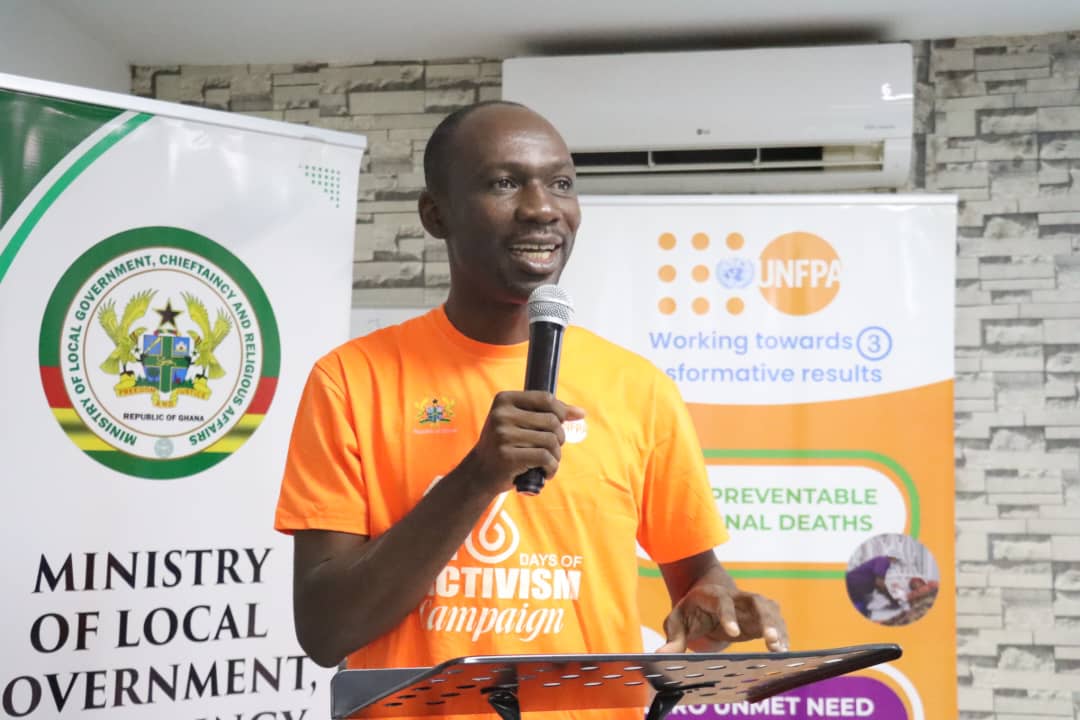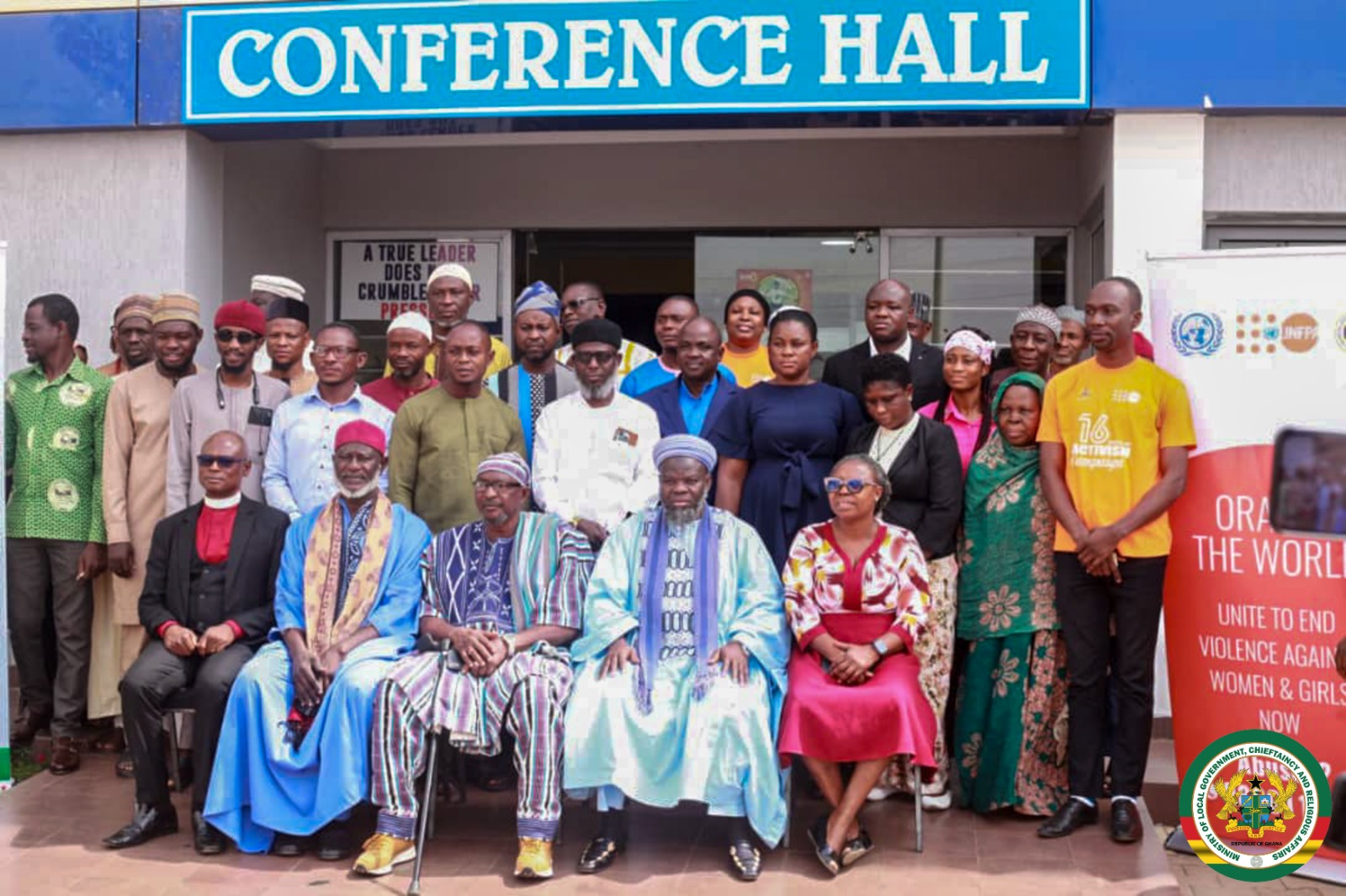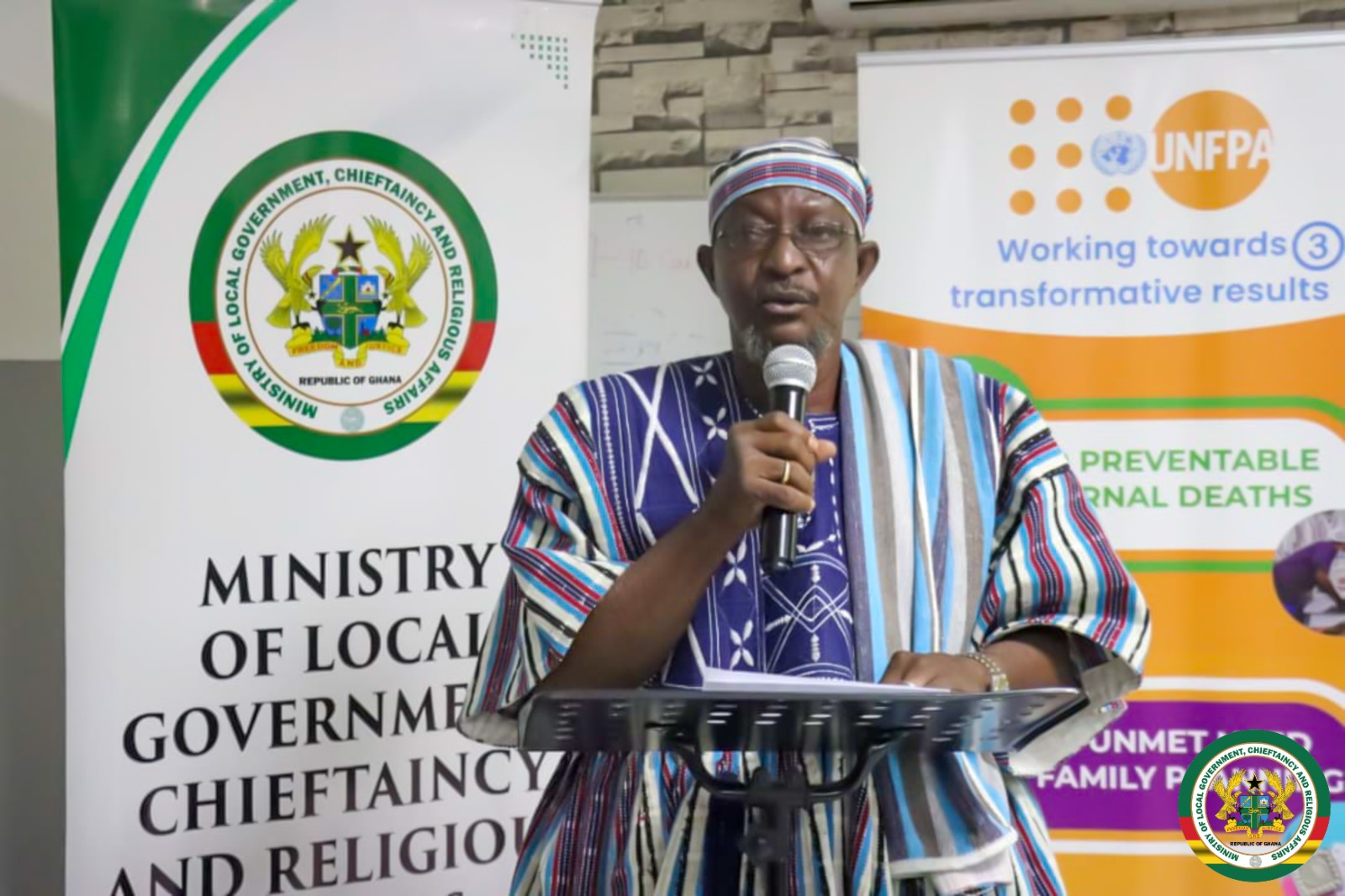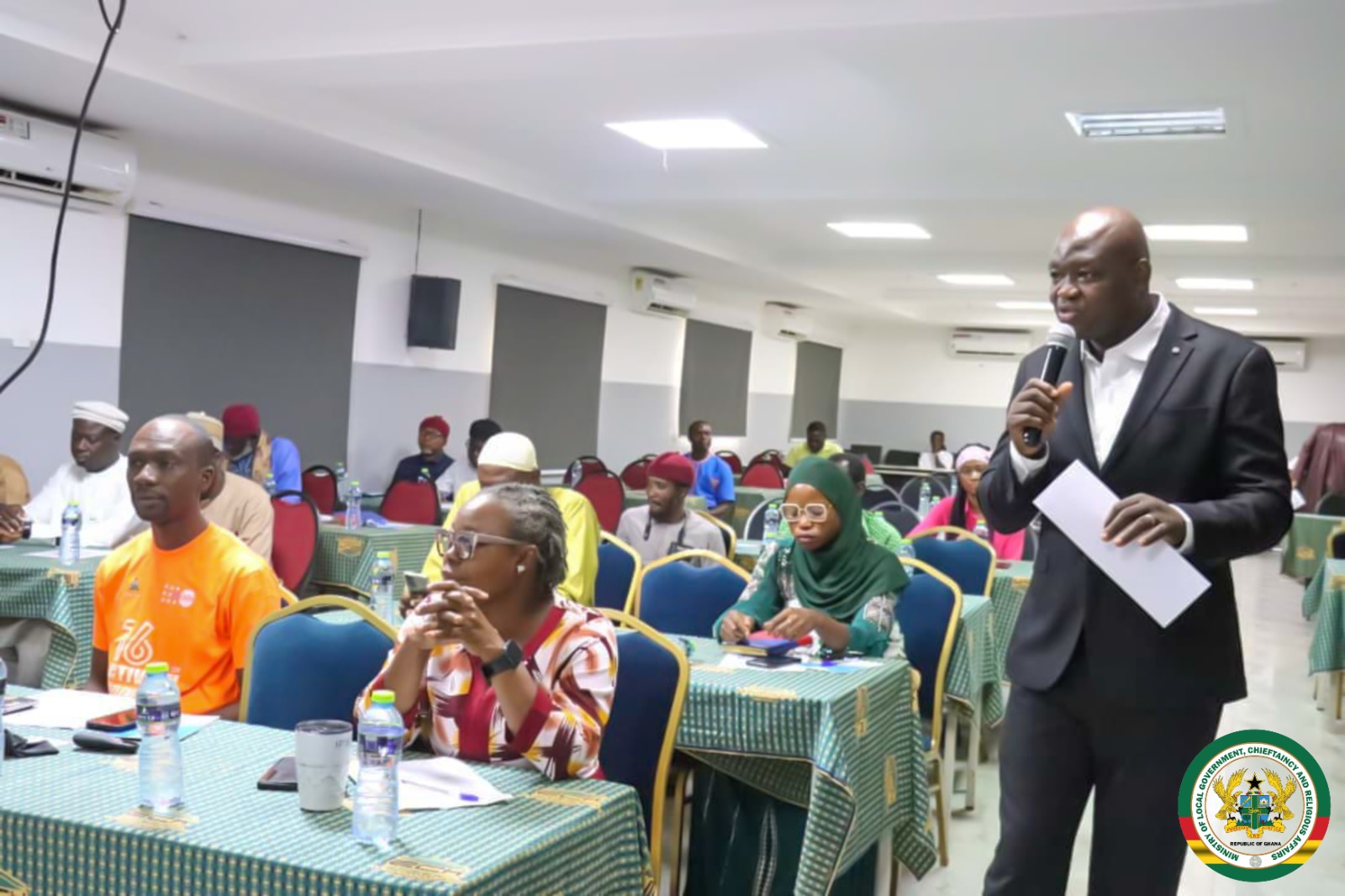The Minister for Local Government, Chieftaincy and Religious Affairs Hon. Ahmed Ibrahim has reaffirmed government’s commitment to restoring cleanliness and order across the country, as he led ongoing engagements under the National Sanitation Week initiative.
Addressing the media on Wednesday, 17th December 2025 after visiting Okaikwei North, Ga Central, Ga North and Ga South Metropolitan, Municipal and District Assemblies (MMDAs), he observed that Metropolitan, Municipal and District Chief Executives (MMDCEs) have heeded the call and moved to the grounds to ensure the city is clean and ready for the Christmas celebration.
He explained that the National Sanitation Week, which runs from Saturday to Saturday, is not a one-off exercise rather a broader national reset aimed at making Ghana clean and bright. According to him, sanitation activities will continue beyond the designated week, gradually transitioning into a 24-hour sanitation culture across the country.
The Minister also highlighted complementary interventions including the distribution of streetlights by Regional Ministers to MMDAs nationwide to illuminate streets and public spaces to ensure that by Saturday, 20th December 2025 the country is clean and bright
The Minister commended the media for their sustained support in amplifying sanitation messages and holding duty bearers accountable. He urged MMDCEs to demonstrate inner drive and leadership initiative, emphasizing that progress must not depend on external pressure.
He cautioned that unannounced monitoring visits will continue, noting that with the combined force of the media, field inspections, and the National Complaint Center, accountability at the local level will be significantly heightened.
Source: Chantal Aidoo
Public Relations Unit, MLGCRA

